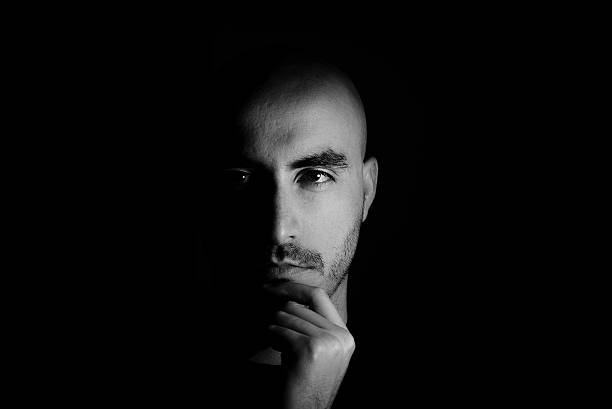For as long as humans have told stories, we’ve tried to answer one of life’s most pressing questions: What does it mean to live well? Philosophers, poets, psychologists, and spiritual seekers have spent centuries debating whether a good life is defined by how much joy it holds or by how much purpose it serves. Until now, the conversation has circled two familiar poles—happiness, marked by pleasure and comfort, and meaning, shaped by purpose and responsibility.
But what if we’ve been overlooking a third path—one that’s neither easy nor always pleasant, but that might be just as essential?
In a groundbreaking new study published in Trends in Cognitive Sciences, researchers Erin Westgate, Ph.D., of the University of Florida and Shigehiro Oishi, Ph.D., of the University of Chicago, propose that a “psychologically rich life” is a third, distinct dimension of well-being. Their research suggests that for many people, especially those drawn to novelty, challenge, and curiosity, psychological richness might be more fulfilling than happiness or meaning alone.
The Allure of the Uncomfortable
Psychological richness isn’t about being cheerful or virtuous. It’s about being changed.
It’s the life lived with open eyes and a restless mind—a life of aha moments and paradigm shifts. It’s the kind of life shaped by unexpected turns, difficult experiences, and encounters that jolt us out of our routines. And surprisingly, people seek this richness even when it makes them uncomfortable.
“This idea came from the question: Why do some people feel unfulfilled even when they have happy and meaningful lives?” Westgate explained. “What was missing, we found, was psychological richness—experiences that challenge you, change your perspective, and satisfy your curiosity.”
Unlike happiness, which is rooted in enjoyment, and meaning, which is anchored in service or structure, psychological richness thrives on variety, novelty, and intellectual stimulation. It lives in the messy, vivid, unpredictable moments of life.
What Makes a Life Rich
You don’t need to climb a mountain or move to another continent to live a psychologically rich life. Sometimes, it begins with something as ordinary as reading a powerful book or hearing a song that leaves you feeling haunted. Other times, richness emerges from events that shake you to your core—a breakup, an illness, a political upheaval, or even a natural disaster.
Westgate’s team has studied how students at the University of Florida react emotionally to major hurricanes. The storms weren’t enjoyable, and they weren’t particularly meaningful in the traditional sense. But many students reported that surviving them changed the way they viewed the world. These were moments of intense disruption—and deep personal transformation.
College, too, serves as a prime example of psychological richness. It may not be consistently happy, and for many students it’s a confusing time of identity development and trial and error. But it’s also a period packed with life-changing ideas, emotional intensity, and new perspectives.
That’s the heart of psychological richness—it doesn’t promise peace. It promises evolution.
A New Vocabulary for Well-Being
The notion of psychological richness is not entirely new, but this latest study brings it into sharper focus. Westgate and Oishi have been developing the concept for nearly a decade, introducing it formally in 2022 and now expanding it to a global audience. Their latest work offers evidence that people across cultures not only understand this dimension of well-being—but many even prioritize it.
This challenges the centuries-old psychological tradition of focusing on two primary dimensions of well-being: hedonic, which centers on happiness and pleasure, and eudaimonic, which emphasizes meaning, virtue, and moral living.
Psychological richness, by contrast, doesn’t fit neatly into either. It may involve discomfort. It may not make you smile. It might even leave you confused. But it expands the self—and for many, that expansion is life’s most important reward.
Why It Resonates Now
There’s something profoundly timely about this third path.
In a world where certainty seems elusive—where climate change, pandemics, political unrest, and mental health crises dominate headlines—more people are realizing that life isn’t always about being happy or chasing purpose. Sometimes it’s about becoming someone new in the face of change.
Psychologically rich experiences can arise in both joy and chaos. They’re the kinds of moments that make people say, “I was never the same after that.” It could be the year you studied abroad and got lost in a country where you didn’t speak the language. It could be the night you sat with a friend through their grief. It might even be the hour you read a poem that made you question everything you thought you knew.
These are the moments that don’t always make us happy, but they make us alive.
The Trade-offs of Richness
Of course, richness doesn’t come without cost. Westgate acknowledges that “interesting experiences aren’t always pleasant experiences.” In fact, many of the most psychologically rich moments involve trade-offs—between comfort and curiosity, between stability and growth.
People who seek psychological richness often make choices that confuse others. They might leave a stable job to pursue something uncertain. They might choose to read challenging books instead of watching feel-good movies. They might willingly put themselves in situations that are unfamiliar, uncomfortable, and emotionally intense.
But for them, the payoff is worth it. They’re not looking for serenity—they’re looking for transformation.
And this shift in values has practical implications. It means mental health professionals, educators, and even employers might need to rethink how they define success and well-being. Not everyone wants the same version of a good life.
Toward a Fuller Understanding of Living Well
Ultimately, what Westgate and Oishi’s research offers is a more inclusive, realistic, and dynamic understanding of human flourishing.
Not everyone wants to be happy all the time. Not everyone finds fulfillment in purpose or service. Some people want a life that surprises them, challenges them, and reshapes the way they see themselves and the world. And these people—often misunderstood as restless or dramatic—may actually be pursuing a form of well-being that is deeply valid and psychologically sound.
That doesn’t mean psychological richness is better than happiness or meaning. It means it belongs—as a third way to understand what it means to live deeply, thoughtfully, and authentically.
In a culture that often sells us formulas for happiness or purpose, this research is a quiet rebellion. It says: Maybe what you need isn’t comfort or clarity. Maybe what you need is to change.
Reference: Shigehiro Oishi et al, Psychological richness offers a third path to a good life, Trends in Cognitive Sciences (2025). DOI: 10.1016/j.tics.2025.04.002






